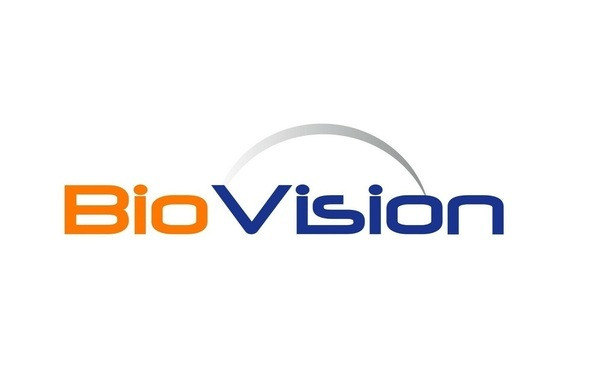Biovision
Human CellExp™ Kallikrein-13, human recombinant
- SKU:
- 26-7413
- Availability:
- Usually Shipped in 5 Working Days
- Size:
- 10 μg
- Storage Temperature:
- -20°C
- Shipping Conditions:
- Gel Pack
- Shelf Life:
- 12 months
Description
Biomolecule/Target: Kallikrein-13
Synonyms: KLK13, KLKL4, KLK-13, Kallikrein-13
Alternates names: KLK13, KLKL4, KLK-13, Kallikrein-13
Taglines: Regarded as a novel cancer biomarker
Taglines: USA
Country of Animal Origin: USA
NCBI Gene ID #.: 26085
NCBI Gene Symbol: KLK13
Gene Source: Human
Accession #: Q9UKR3
Recombinant: Yes
Source: HEK293 cells
Purity by SDS-PAGE #: ≥95%
Assay: SDS-PAGE
Purity: N/A
Assay #2: N/A
Endotoxin Level: <1 EU/μg by LAL method
Activity (Specifications/test method): N/A
Biological activity: Measured by its ability to cleave the fluorogenic peptide substrate Boc-VPR-AMC. The specific activity is > 150 pmoles / min / µg.
Results: Measured by its ability to cleave the fluorogenic peptide substrate Boc-VPR-AMC. The specific activity is > 150 pmoles / min / µg.
Binding Capacity: N/A
Unit Definition: N/A
Molecular Weight: This protein is fused with 6×his tag at the C-terminus, and has a calculated MW of 28 kDa. The predicted N-terminus is Gly 18. DTT-reduced Protein migrates as 33-40 kDa in SDS-PAGE due to glycosylation.
Concentration: N/A
Appearance: Lyophilized
Physical form description: Lyophilized from 0.22 μm filtered solution in 20 mM MES, 150 mM NaCl, pH 6.0. Normally Mannitol or Trehalose are added as protectants before lyophilization.
Reconstitution Instructions: Centrifuge the vial prior to opening. Reconstitute in sterile PBS, pH 7.4 to a concentration of 50 µg/ml. Do not vortex. This solution can be stored at 2-8°C for up to 1 month. For extended storage, it is recommended to store at -20°C.
Background Information: Kallikrein-13 (KLK13) is also known as Kallikrein-like protein 4 (KLK-L4), is a secreted protein, belongs to the peptidase S1 family and Kallikrein subfamily. KLK-13 contains one peptidase S1 domain. KLK13 is mainly expressed in prostate, breast, testis and salivary gland. KLK13 may be involved in the pathogenesis and / or progression of breast and ovary cancers, and is regarded as a novel cancer biomarker. In addition, KLK13 interacts and forms complexes with several serum protease inhibitors, such as alpha2-macroglobulin, and its expression is regulated by steroid hormones.
Amino acid sequence: N/A
Handling: Centrifuge the vial prior to opening.
Usage: For Research Use Only! Not to be used in humans






